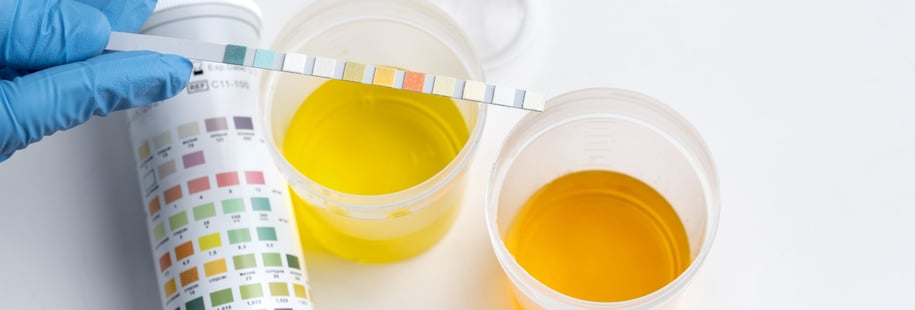Urine Test
5/4/20251 min read


What's Measured
Physical Examination:
Color: A normal color is typically straw-colored, but variations can indicate dehydration or other conditions.
Clarity: Clear urine is usually normal. Cloudiness can suggest a urinary tract infection or other issues.
Odor: A strong or unusual odor can indicate infection or other problems.
Specific Gravity: This measures the concentration of particles in your urine and can be related to fluid levels.
Chemical Examination:
pH: Measures the acidity or alkalinity of the urine, which can be an indicator of kidney or urinary tract disorders.
Blood: Blood in the urine can indicate a variety of conditions, including infections, kidney disease, or even cancer.
Protein: Healthy kidneys filter blood and don't pass protein into urine. Protein in the urine can suggest kidney damage.
Glucose: Elevated glucose levels in the urine can be a sign of diabetes.
Ketones: Ketones in the urine can indicate diabetes-related ketoacidosis.
Bilirubin: Bilirubin in the urine can indicate liver or bile duct issues.
Leukocyte Esterase: This enzyme is found in white blood cells and can indicate an infection.
Nitrites: Nitrites in the urine can be a sign of a urinary tract infection.
Microscopic Examination:
Red Blood Cells: Abnormalities in red blood cells can indicate various conditions.
White Blood Cells: High levels can indicate an infection.
Epithelial Cells: Can indicate a tumor or other abnormalities.
Casts: Cylindrical structures that form in the kidneys, not usually found in urine.
Crystals: Can indicate kidney stones or other conditions.
Microbes: Bacteria or other microorganisms.
No Fasting
Report Timing : Within 30 minutes
Test Price : 50 1̶0̶0̶